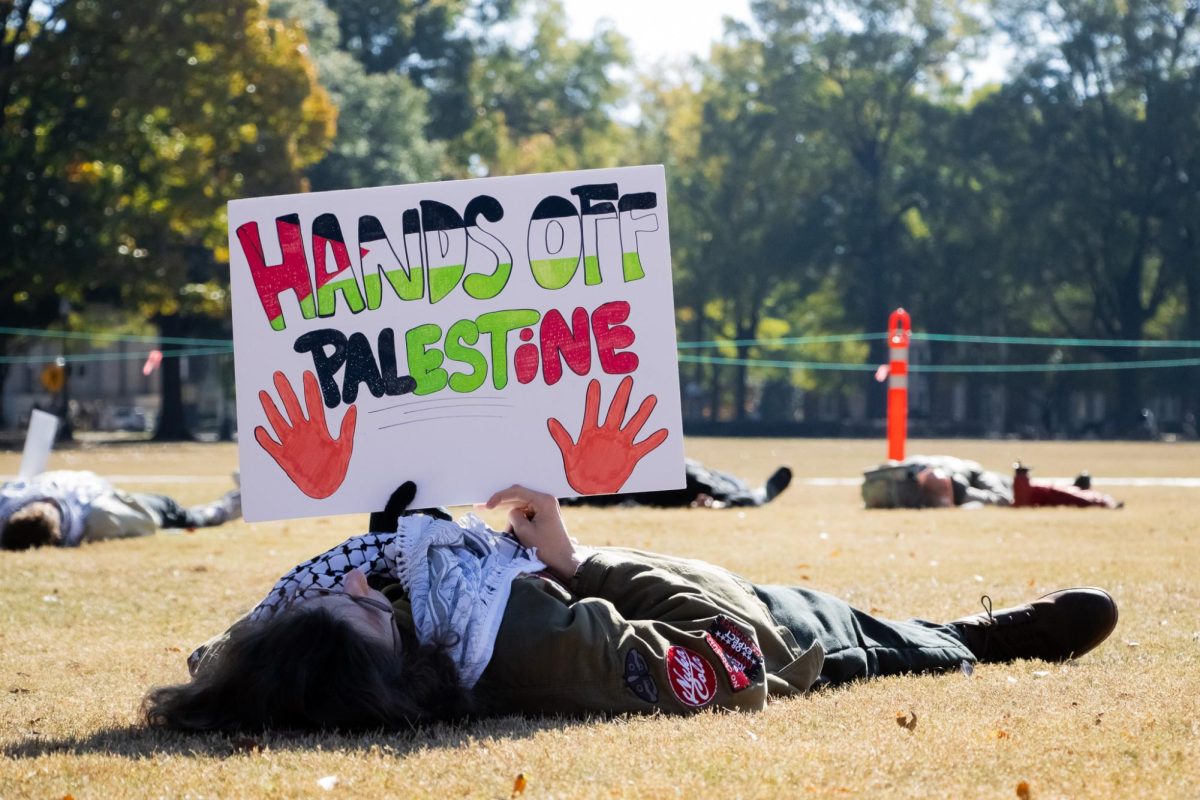Sustained Dialogue will bring together students and expert panelists tonight to discuss the importance of free speech on campus — how it is restricted, and how to maneuver the grounds use policy in order to organize rallies and protests.
The forum, Free Food and Free Speech: Understanding UA Speech and Sponsorship Policies, will feature a panel consisting experts from around campus. The panelists are Carl Bacon, the director of the Ferguson Center, Joseph Smith from the political science department, and Bryan Fair from the School of Law.
The panelists will offer their insight on issues of free speech. There will be a 30-minute question and answer session during which students can voice their concerns and offer topics of discussion.
Sustained Dialogue moderator Marina Roberts said the topic of free speech always came back in discussion, and she and the other moderators decided to create a forum in which to flesh out the topic. Her main goal is for students to walk away from the forum with a better understanding of the grounds policy.
“The average student at UA doesn’t know how to stage a protest, which is sad,” Roberts said.
The University does not have a free speech policy, said Director of Media Relations Cathy Andreen. The grounds use policy was implemented three years ago in response to the increase in student population and the increased demand for the use of grounds and facilities. Andreen said the grounds use permit process ensures that events, speeches and demonstrations held on campus do not endanger the safety of students and the campus community.
“The University respects the free speech and assembly rights of our students. To hold an event on campus, student organizations must simply comply with the Student Affairs event registration policy, which usually includes a request to use UA grounds of facilities,” Andreen said.
The University space, facilities and grounds policy was last updated in August. It states that beyond the priorities of academia and University sponsored programs, “use of campus space is permitted for activities that are intended to serve or benefit the University community and must not interfere with the academic climate of the University.”
One of the reasons listed in the policy of why an official would not approve an application for grounds use is that “the activity would constitute an immediate and actual danger to University students, faculty, or staff, or to the peace or security of the University that available law enforcement officials could not control with reasonable effort.”
Andreen gave a few examples.
“It would not be appropriate for someone to disrupt a math class to protest political events, for someone to yell ‘fire’ in a crowded auditorium, or for a group to schedule a loud concert on the Quad during finals.”
Roberts said she thinks the ten-page policy is difficult to maneuver and discourages civic engagement at all. She recalled the Environmental Council’s failed efforts to hold a rally on campus protesting the strip mining near the Black Warrior River.
“Nothing could be more harmful or detrimental than to have a policy in place that discourages students from being engaged and active,” Roberts said.
Though he cannot attend the forum, professor emeritus of political science Bill Stewart was initially going to be a panelist. He said that passive attitudes towards politics are a big problem in the state of Alabama, but the ability to have a rally or protest is excellent preparation for active citizenship following graduation.
“It represents students actually exercising their constitutional rights rater than just being taught about them in the classroom,” Stewart said.
Both Roberts and Stewart said they understand the good and bad that can come with free speech and rallies. Stewart used for examples the 1963 stand in the schoolhouse door and the 1970 anti-Vietnam War protests. Roberts recalled Autherine Lucy’s thwarted attempt to attend the university in 1956.
“We’re walking the line between mindless, thoughtless rioting and intentional activism and protest and civic engagement,” Roberts said.
Roberts said the students should be allowed to protest unethical business practices, detrimental policies from the UA administration or the national government, and anything they find morally wrong. She said she believes that being able to hold a rally in college will start a healthy trend of being civically engaged as citizens.
“If we don’t learn this now, when are we going to learn to do this?” she said.
The forum will be tonight from 6-8 in Lloyd Auditorium.








